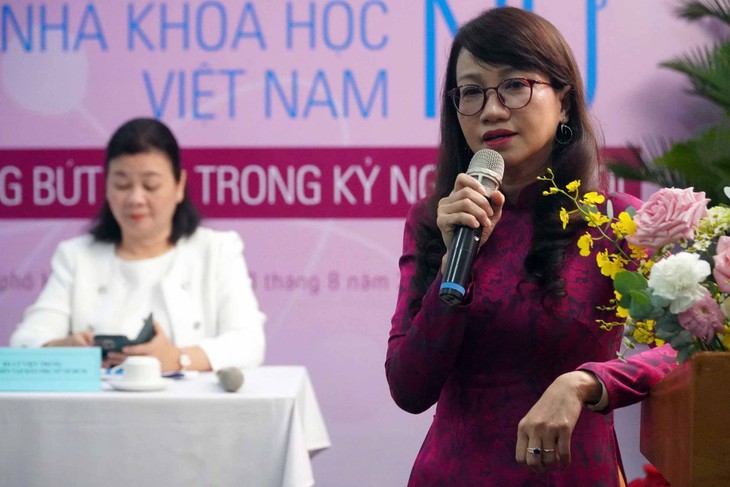
Prof. Dr. Nguyen Thi Thanh Mai presented a paper at the conference - Photo: HUE XUAN
This is one of the outstanding figures presented at the workshop "Intellectual imprints of Vietnamese female scientists and the aspiration to break through in the new era", jointly organized by the Central Propaganda and Education Commission, Ho Chi Minh City National University and Ho Chi Minh City Women's Newspaper on August 28.
The resource of female scientists is huge.
At the workshop, Prof. Dr. Nguyen Thi Thanh Mai - Vice President of Ho Chi Minh City National University - emphasized that Vietnamese female intellectuals are a special resource in the science and technology ecosystem.
Vietnam currently has a female participation rate in scientific research of about 45%, among the highest in Asia, reflecting the tradition of valuing education and the tireless efforts of many generations of female intellectuals.
On the contrary, in some developed Asian countries, this rate is still very low, Japan is only about 17% (2022), Korea is 20-25%, China accounts for nearly 28% (2022).
Even within ASEAN, the picture is diverse: the Philippines and Thailand have more than 50% of scientists who are women, while Singapore has about 34% and Cambodia only about 20% (2023). These differences stem from many historical, cultural, educational and labor policy factors in each country.
According to Prof. Dr. Nguyen Thi Thanh Mai, practice shows that when participating in the "Three Houses" model - State, School and Business, female intellectuals often become effective "bridges". They understand scientific language, are sensitive to the market, and have the ability to build trust and create consensus.
At Ho Chi Minh City National University, many strategic cooperations with large enterprises such as VNG, Nestlé, VinUni or CT Group have been initiated or strongly promoted thanks to the connecting role of female leaders and scientists.
Professor Thanh Mai pointed out the phenomenon of "glass ceiling" - an invisible barrier that prevents women from developing to a higher level, and "leaky pipeline" - the gradual loss of women on the journey of scientific career. Therefore, it is necessary to have synchronous policies, from the legal framework to the working environment, to ensure equal opportunities for women in scientific research, teaching and management.
Specifically, she proposed four groups of solutions. The first is to perfect gender equality policies in science, such as setting minimum targets for the proportion of female project managers and leaders of scientific councils.
Second is to build a friendly working environment, support female scientists with flexible maternity leave, childcare services, and strictly handle gender discrimination.
Third is to develop mentoring networks and scholarship programs, female-specific professorships, and promote the “HeForShe” movement in academia.
Finally, learn from international experiences such as the Athena SWAN program (UK), ADVANCE (USA) or the Nordic model to improve the proportion of women in STEM.
Removing barriers for female scientists
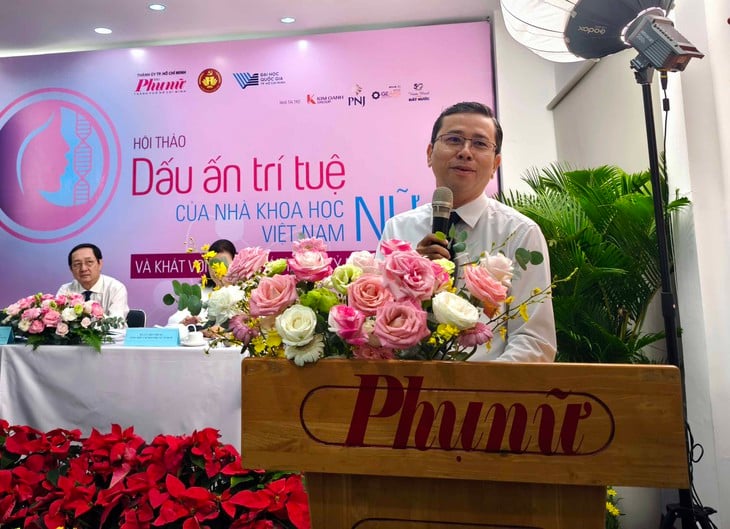
Dr. Bui Hong Dang shares his perspective on developing a team of female scientists at Ho Chi Minh City University of Industry and Trade - Photo: TRONG NHAN
Also at the workshop, Dr. Bui Hong Dang - Chairman of the Council of Ho Chi Minh City University of Industry and Trade - said that in the 2024-2025 school year, the school has 135 basic-level scientific research topics, of which more than half have the participation of women.
Notably, 39 female lecturers have applied for associate professorship, and 21 female staff and lecturers have completed doctoral and master's programs.
Not only stopping at academic research, many female lecturers also coordinate interdisciplinary research groups, lead highly applied topics, participate in 12 consulting - technology transfer contracts with a total budget of 7.4 billion VND, of which there are 33 female lecturers, accounting for nearly 40%.
He proposed that there should be more practical support policies for female lecturers, developing a women-centered innovation ecosystem, enhancing international cooperation, building a flexible working environment, and promoting communication and honoring exemplary female intellectuals.
According to Associate Professor Dr. Nguyen Minh Hoa - lecturer at the University of Social Sciences and Humanities (Ho Chi Minh City National University), scientific research is a heavy job, requiring perseverance and courage, and for women, this pressure is often multiplied many times when they have to take on both professional responsibilities and family responsibilities. Therefore, the proportion of women participating in research is still limited, especially in policy, interdisciplinary or highly sensitive areas.
To create a fair environment, he believes that it is necessary to frankly acknowledge the difficulties that female scientists are facing, from accessing original data sources to invisible barriers in the process of reviewing and implementing topics.
He proposed some specific solutions: The Ministry of Science and Technology needs to issue regulations so that scientists, especially women, can have easier access to original information sources from management agencies.
At the same time, it is necessary to limit negative aspects related to finance such as spending percentages on many intermediary stages, so that scientists can focus on their expertise instead of being burdened by extra work.
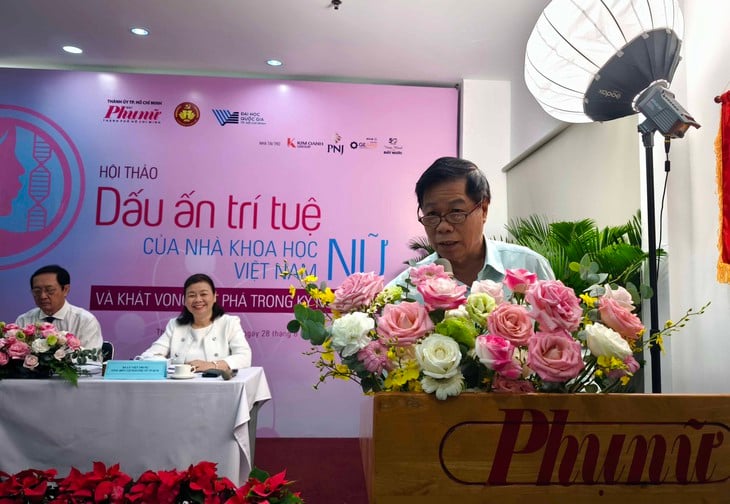
Associate Professor, Dr. Nguyen Minh Hoa discussed at the workshop - Photo: TRONG NHAN
Closing the workshop, Deputy Head of the Central Propaganda and Mass Mobilization Commission Huynh Thanh Dat emphasized that women should not only play a companion role, but also become a pioneering force. He affirmed that the comprehensive development of society cannot be realized without the wisdom and dedication of women.
In the context of the digital age, according to Mr. Dat, the typical qualities of female intellectuals such as innovative thinking, flexibility and the ability to connect with the community are the key to creating real progress in innovation and creativity.
He expressed his belief that with breakthrough solutions implemented synchronously and drastically, more and more Vietnamese female scientists will be present at scientific forums at home and abroad, contributing to affirming the position of Vietnamese intelligence and contributing to the sustainable development of the country as well as the common progress of the world.
Source: https://tuoitre.vn/ti-le-nha-khoa-hoc-nu-o-viet-nam-cao-hon-nhieu-nuoc-phat-trien-20250828180058957.htm




![[Photo] Politburo works with the Standing Committee of Cao Bang Provincial Party Committee and Hue City Party Committee](https://vphoto.vietnam.vn/thumb/1200x675/vietnam/resource/IMAGE/2025/8/28/fee8a847b1ff45188749eb0299c512b2)
![[Photo] Red flag with yellow star flutters in France on National Day September 2](https://vphoto.vietnam.vn/thumb/1200x675/vietnam/resource/IMAGE/2025/8/28/f6fc12215220488bb859230b86b9cc12)
![[Photo] General Secretary To Lam attends the opening ceremony of the National Achievements Exhibition](https://vphoto.vietnam.vn/thumb/1200x675/vietnam/resource/IMAGE/2025/8/28/d371751d37634474bb3d91c6f701be7f)
![[Photo] General Secretary To Lam presents the 45-year Party membership badge to comrade Phan Dinh Trac](https://vphoto.vietnam.vn/thumb/1200x675/vietnam/resource/IMAGE/2025/8/28/e2f08c400e504e38ac694bc6142ac331)
![[Photo] Prime Minister Pham Minh Chinh meets with Speaker of the New Zealand Parliament Gerry Brownlee](https://vphoto.vietnam.vn/thumb/1200x675/vietnam/resource/IMAGE/2025/8/28/cec2630220ec49efbb04030e664995db)
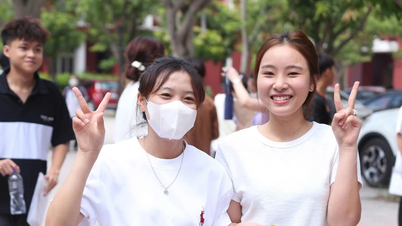

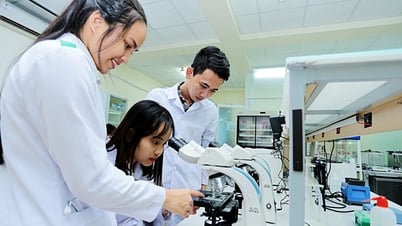
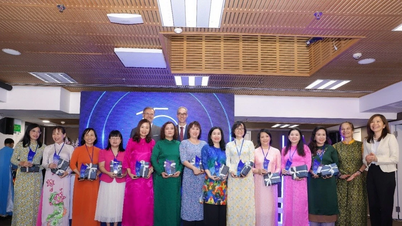



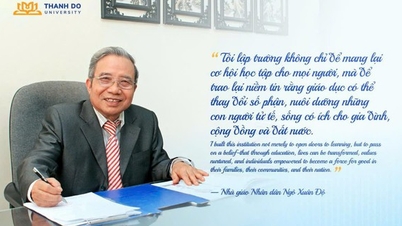


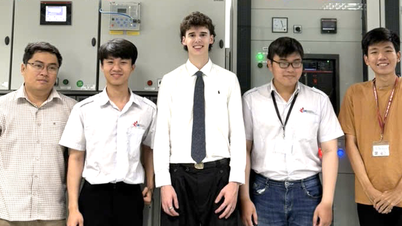
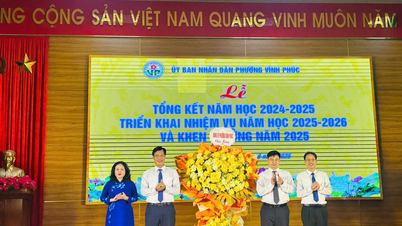

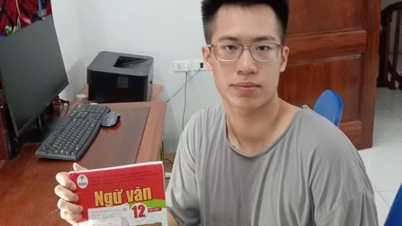



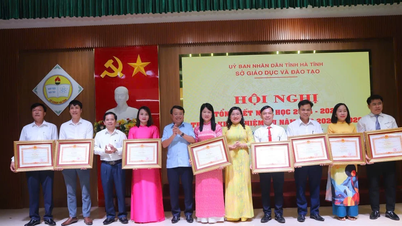








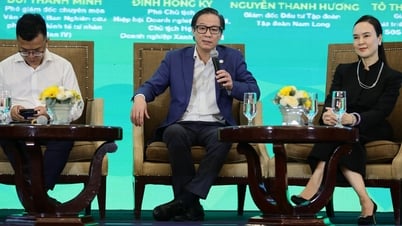










































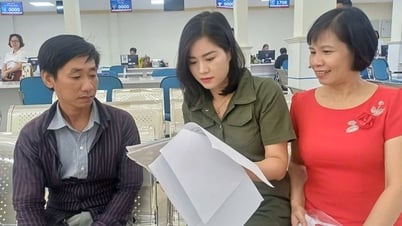
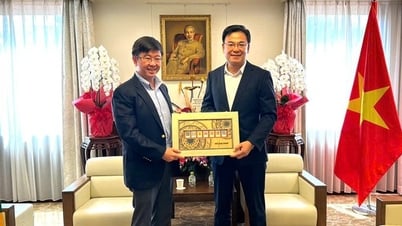


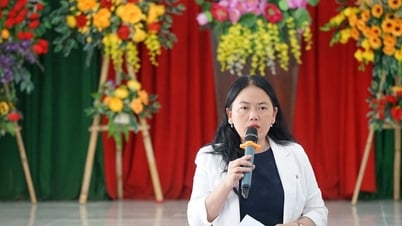
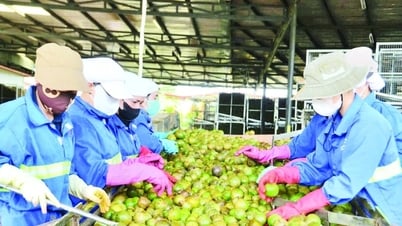
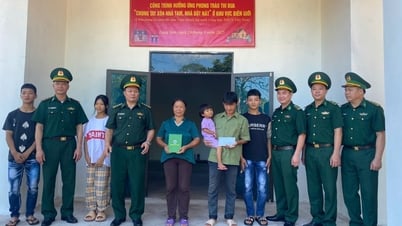

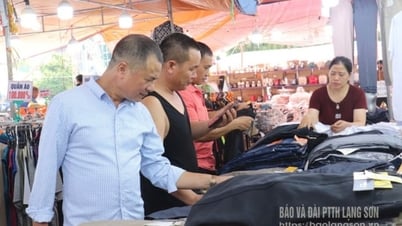
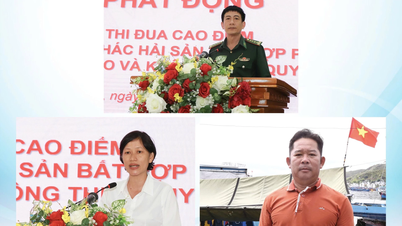
















Comment (0)